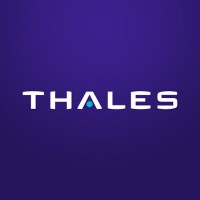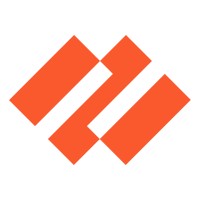
Ledger Company Cyber Security Posture
ledger.comFounded in Paris in 2014, LEDGER is a global platform for digital assets and Web3. Ledger is already the world leader in Critical Digital Asset security and utility. With more than 6M devices sold to consumers in 200 countries and 10+ languages, 100+ financial institutions and brands as customers, 20% of the world’s crypto assets are secured, plus services supporting trading, buying, spending, earning, and NFTs. LEDGER’s products include: Ledger Stax, Nano S Plus, Nano X hardware wallets, LEDGER Live companion app, [ LEDGER ] Market, the world’s first secure-minting and first-sale distribution platform, and Ledger Enterprise. With its ease of use, LEDGER allows a user to begin investing in digital assets and ultimately, achieve financial freedom in a safe and stress-free environment. Headquartered in Paris and Vierzon, with offices in London, New York and Singapore, Ledger has a team of more than 900 professionals developing a variety of products and services to enable individuals and companies to securely buy, store, swap, grow and manage crypto assets – including more than 6 millions devices already sold in 180 countries. Ledger combines either Nano S Plus or Nano X and the Ledger Live app to offer consumers the easiest way to start their crypto journey while maintaining full control over their digital assets. With its ease of use, Ledger allows users to begin investing in digital assets and ultimately, achieve financial freedom in a safe and stress-free environment, with education provided by its Ledger Academy and Quest. In addition to consumer products, Ledger has also developed Ledger Enterprise, a digital asset custody and security solution for institutional investors and financial players.
Ledger Company Details
ledgerhq
688 employees
70865
none
Computer and Network Security
ledger.com
Scan still pending
LED_1170851
In-progress
Between 200 and 800
This score is AI-generated and less favored by cyber insurers, who prefer the TPRM score.
 Ledger Global Score
Ledger Global Score.png)

Ledger Company Scoring based on AI Models
| Model Name | Date | Description | Current Score Difference | Score |
|---|---|---|---|---|
| AVERAGE-Industry | 03-12-2025 | This score represents the average cybersecurity rating of companies already scanned within the same industry. It provides a benchmark to compare an individual company's security posture against its industry peers. | N/A | Between 200 and 800 |
Ledger Company Cyber Security News & History
| Entity | Type | Severity | Impact | Seen | Url ID | Details | View |
|---|---|---|---|---|---|---|---|
| Ledger | Breach | 60 | 3 | 12/2023 | LED743221223 | Link | |
Rankiteo Explanation : Attack with significant impact with internal employee data leaksDescription: The Ledger Connect Kit software of the Paris-based business was compromised by a phishing attempt targeting a former worker. During transactions using decentralised applications, or dapps, that utilised the compromised software, the hacker released malicious code that routed user funds to their own wallet. | |||||||
| Ledger | Data Leak | 85 | 3 | 06/2020 | LED213813123 | Link | |
Rankiteo Explanation : Attack with significant impact with internal employee data leaksDescription: Major cryptocurrency hardware wallet provider Ledger experienced a data breach. The company said it was made aware of the breach on July 14 when a researcher participating in its bounty program reached out with details of a potential vulnerability on their website. While they were able to fix the breach immediately, a further investigation found that an authorized third party carried out a similar action on June 25. The individual used an API key to access the marketing and e-commerce database the company used to send promotional emails. This compromised the email addresses of almost one million people. For a subset of 9,500 customers, details such as first and last name, postal address, and phone number were also exposed. | |||||||
Ledger Company Subsidiaries

Founded in Paris in 2014, LEDGER is a global platform for digital assets and Web3. Ledger is already the world leader in Critical Digital Asset security and utility. With more than 6M devices sold to consumers in 200 countries and 10+ languages, 100+ financial institutions and brands as customers, 20% of the world’s crypto assets are secured, plus services supporting trading, buying, spending, earning, and NFTs. LEDGER’s products include: Ledger Stax, Nano S Plus, Nano X hardware wallets, LEDGER Live companion app, [ LEDGER ] Market, the world’s first secure-minting and first-sale distribution platform, and Ledger Enterprise. With its ease of use, LEDGER allows a user to begin investing in digital assets and ultimately, achieve financial freedom in a safe and stress-free environment. Headquartered in Paris and Vierzon, with offices in London, New York and Singapore, Ledger has a team of more than 900 professionals developing a variety of products and services to enable individuals and companies to securely buy, store, swap, grow and manage crypto assets – including more than 6 millions devices already sold in 180 countries. Ledger combines either Nano S Plus or Nano X and the Ledger Live app to offer consumers the easiest way to start their crypto journey while maintaining full control over their digital assets. With its ease of use, Ledger allows users to begin investing in digital assets and ultimately, achieve financial freedom in a safe and stress-free environment, with education provided by its Ledger Academy and Quest. In addition to consumer products, Ledger has also developed Ledger Enterprise, a digital asset custody and security solution for institutional investors and financial players.
Access Data Using Our API

Get company history
.png)
Ledger Cyber Security News
3 tips to avoid being cyber-scammed
A panel of local cybersecurity experts share practical steps to guard against falling victim to scammers.
Hackers using fake Ledger Live app to steal seed phrases and drain crypto
Cybercriminals are using fake Ledger Live apps to drain macOS users' crypto through malware that steals seed phrases, a cybersecurity firm warns ...
Cyber LIVE London Q&A With Justin Kuruvilla, Risk Ledger
Justin joined Risk Ledger after a career supporting the US Government in cybersecurity. He worked as a technical director for cybersecurity ...
Mac users beware - fake Ledger apps are being used by hackers to steal seed phrases and hack accounts
Mac users beware - fake Ledger apps are being used by hackers to steal seed phrases and hack accounts · Security researchers spot fake Ledger ...
Hackers Attacking macOS Users With Fake Ledger Apps to Deploy Malware
Cybercriminals target crypto users with fake Ledger Live apps, exploiting trust in cold wallets to steal funds since August 2024.
Blockchain security firm Ledger raises $75m funding
Blockchain security firm Ledger raises $75m funding. Investment takes the company's total capital to more than $85 million.
Hackers Target macOS Users with Fake Ledger Apps to Deploy Malware
Hackers are increasingly targeting macOS users with malicious clones of Ledger Live, the popular application for managing crypto assets.
Major Security Concern Flagged on XRP Ledger (XRPL)
A new security concern has emerged in the XRP Ledger (XRPL) community. Reports show that a backdoor has been discovered in the official XRPL ...
Backdoor Found in Official XRP Ledger NPM Package
XRP Ledger SDK hit by supply chain attack: Malicious NPM versions stole private keys; users urged to update xrpl package to 4.2.5 or 2.14.3.

Ledger Similar Companies

Thales Cyber Solutions
Drawing on a team of 6,000 experts and developers, Thales is a global leader in cybersecurity – no.1 in data security - with solutions deployed in 148 countries, generating annual revenues in excess of €2 billion in the domain. Thales supports its enterprise and government customers in the cybe

Google Cloud Security
With comprehensive cybersecurity solutions, organizations can address their tough security challenges with many of the same capabilities Google uses to keep more people and organizations safe online than anyone else in the world. Experience Mandiant frontline intelligence and expertise, a modern, in

CrowdStrike
CrowdStrike (Nasdaq: CRWD), a global cybersecurity leader, has redefined modern security with the world’s most advanced cloud-native platform for protecting critical areas of enterprise risk — endpoints and cloud workloads, identity and data. Powered by the CrowdStrike Security Cloud and world-clas

Palo Alto Networks
Palo Alto Networks, the global cybersecurity leader, is shaping the cloud-centric future with technology that is transforming the way people and organizations operate. Our mission is to be the cybersecurity partner of choice, protecting our digital way of life. We help address the world's greatest s

Frequently Asked Questions (FAQ) on Cybersecurity Incidents
Ledger CyberSecurity History Information
Total Incidents: According to Rankiteo, Ledger has faced 2 incidents in the past.
Incident Types: The types of cybersecurity incidents that have occurred include ['Breach', 'Data Leak'].
Total Financial Loss: The total financial loss from these incidents is estimated to be {total_financial_loss}.
Cybersecurity Posture: The company's overall cybersecurity posture is described as Founded in Paris in 2014, LEDGER is a global platform for digital assets and Web3. Ledger is already the world leader in Critical Digital Asset security and utility. With more than 6M devices sold to consumers in 200 countries and 10+ languages, 100+ financial institutions and brands as customers, 20% of the world’s crypto assets are secured, plus services supporting trading, buying, spending, earning, and NFTs. LEDGER’s products include: Ledger Stax, Nano S Plus, Nano X hardware wallets, LEDGER Live companion app, [ LEDGER ] Market, the world’s first secure-minting and first-sale distribution platform, and Ledger Enterprise. With its ease of use, LEDGER allows a user to begin investing in digital assets and ultimately, achieve financial freedom in a safe and stress-free environment. Headquartered in Paris and Vierzon, with offices in London, New York and Singapore, Ledger has a team of more than 900 professionals developing a variety of products and services to enable individuals and companies to securely buy, store, swap, grow and manage crypto assets – including more than 6 millions devices already sold in 180 countries. Ledger combines either Nano S Plus or Nano X and the Ledger Live app to offer consumers the easiest way to start their crypto journey while maintaining full control over their digital assets. With its ease of use, Ledger allows users to begin investing in digital assets and ultimately, achieve financial freedom in a safe and stress-free environment, with education provided by its Ledger Academy and Quest. In addition to consumer products, Ledger has also developed Ledger Enterprise, a digital asset custody and security solution for institutional investors and financial players..
Detection and Response: The company detects and responds to cybersecurity incidents through {description_of_detection_and_response_process}.
Incident Details
Incident 1: Ransomware Attack
Title: {Incident_Title}
Description: {Brief_description_of_the_incident}
Date Detected: {Detection_Date}
Date Publicly Disclosed: {Disclosure_Date}
Date Resolved: {Resolution_Date}
Type: {Type_of_Attack}
Attack Vector: {Attack_Vector}
Vulnerability Exploited: {Vulnerability}
Threat Actor: {Threat_Actor}
Motivation: {Motivation}
Incident 2: Data Breach
Title: {Incident_Title}
Description: {Brief_description_of_the_incident}
Date Detected: {Detection_Date}
Date Publicly Disclosed: {Disclosure_Date}
Date Resolved: {Resolution_Date}
Type: {Type_of_Attack}
Attack Vector: {Attack_Vector}
Vulnerability Exploited: {Vulnerability}
Threat Actor: {Threat_Actor}
Motivation: {Motivation}
Common Attack Types: As of now, the company has not encountered any reported incidents involving common cyberattacks.
Identification of Attack Vectors: The company identifies the attack vectors used in incidents through {description_of_identification_process}.
Impact of the Incidents
Incident 1: Ransomware Attack
Financial Loss: {Financial_Loss}
Data Compromised: {Data_Compromised}
Systems Affected: {Systems_Affected}
Downtime: {Downtime}
Operational Impact: {Operational_Impact}
Conversion Rate Impact: {Conversion_Rate_Impact}
Revenue Loss: {Revenue_Loss}
Customer Complaints: {Customer_Complaints}
Brand Reputation Impact: {Brand_Reputation_Impact}
Legal Liabilities: {Legal_Liabilities}
Identity Theft Risk: {Identity_Theft_Risk}
Payment Information Risk: {Payment_Information_Risk}
Incident 2: Data Breach
Financial Loss: {Financial_Loss}
Data Compromised: {Data_Compromised}
Systems Affected: {Systems_Affected}
Downtime: {Downtime}
Operational Impact: {Operational_Impact}
Conversion Rate Impact: {Conversion_Rate_Impact}
Revenue Loss: {Revenue_Loss}
Customer Complaints: {Customer_Complaints}
Brand Reputation Impact: {Brand_Reputation_Impact}
Legal Liabilities: {Legal_Liabilities}
Identity Theft Risk: {Identity_Theft_Risk}
Payment Information Risk: {Payment_Information_Risk}
Average Financial Loss: The average financial loss per incident is {average_financial_loss}.
Commonly Compromised Data Types: The types of data most commonly compromised in incidents are {list_of_commonly_compromised_data_types}.
Incident 1: Ransomware Attack
Entity Name: {Entity_Name}
Entity Type: {Entity_Type}
Industry: {Industry}
Location: {Location}
Size: {Size}
Customers Affected: {Customers_Affected}
Incident 2: Data Breach
Entity Name: {Entity_Name}
Entity Type: {Entity_Type}
Industry: {Industry}
Location: {Location}
Size: {Size}
Customers Affected: {Customers_Affected}
Response to the Incidents
Incident 1: Ransomware Attack
Incident Response Plan Activated: {Yes/No}
Third Party Assistance: {Yes/No}
Law Enforcement Notified: {Yes/No}
Containment Measures: {Containment_Measures}
Remediation Measures: {Remediation_Measures}
Recovery Measures: {Recovery_Measures}
Communication Strategy: {Communication_Strategy}
Adaptive Behavioral WAF: {Adaptive_Behavioral_WAF}
On-Demand Scrubbing Services: {On_Demand_Scrubbing_Services}
Network Segmentation: {Network_Segmentation}
Enhanced Monitoring: {Enhanced_Monitoring}
Incident 2: Data Breach
Incident Response Plan Activated: {Yes/No}
Third Party Assistance: {Yes/No}
Law Enforcement Notified: {Yes/No}
Containment Measures: {Containment_Measures}
Remediation Measures: {Remediation_Measures}
Recovery Measures: {Recovery_Measures}
Communication Strategy: {Communication_Strategy}
Adaptive Behavioral WAF: {Adaptive_Behavioral_WAF}
On-Demand Scrubbing Services: {On_Demand_Scrubbing_Services}
Network Segmentation: {Network_Segmentation}
Enhanced Monitoring: {Enhanced_Monitoring}
Incident Response Plan: The company's incident response plan is described as {description_of_incident_response_plan}.
Third-Party Assistance: The company involves third-party assistance in incident response through {description_of_third_party_involvement}.
Data Breach Information
Incident 2: Data Breach
Type of Data Compromised: {Type_of_Data}
Number of Records Exposed: {Number_of_Records}
Sensitivity of Data: {Sensitivity_of_Data}
Data Exfiltration: {Yes/No}
Data Encryption: {Yes/No}
File Types Exposed: {File_Types}
Personally Identifiable Information: {Yes/No}
Prevention of Data Exfiltration: The company takes the following measures to prevent data exfiltration: {description_of_prevention_measures}.
Handling of PII Incidents: The company handles incidents involving personally identifiable information (PII) through {description_of_handling_process}.
Ransomware Information
Incident 1: Ransomware Attack
Ransom Demanded: {Ransom_Amount}
Ransom Paid: {Ransom_Paid}
Ransomware Strain: {Ransomware_Strain}
Data Encryption: {Yes/No}
Data Exfiltration: {Yes/No}
Ransom Payment Policy: The company's policy on paying ransoms in ransomware incidents is described as {description_of_ransom_payment_policy}.
Data Recovery from Ransomware: The company recovers data encrypted by ransomware through {description_of_data_recovery_process}.
Regulatory Compliance
Incident 1: Ransomware Attack
Regulations Violated: {Regulations_Violated}
Fines Imposed: {Fines_Imposed}
Legal Actions: {Legal_Actions}
Regulatory Notifications: {Regulatory_Notifications}
Incident 2: Data Breach
Regulations Violated: {Regulations_Violated}
Fines Imposed: {Fines_Imposed}
Legal Actions: {Legal_Actions}
Regulatory Notifications: {Regulatory_Notifications}
Regulatory Frameworks: The company complies with the following regulatory frameworks regarding cybersecurity: {list_of_regulatory_frameworks}.
Ensuring Regulatory Compliance: The company ensures compliance with regulatory requirements through {description_of_compliance_measures}.
Lessons Learned and Recommendations
Incident 1: Ransomware Attack
Lessons Learned: {Lessons_Learned}
Incident 2: Data Breach
Lessons Learned: {Lessons_Learned}
Incident 1: Ransomware Attack
Recommendations: {Recommendations}
Incident 2: Data Breach
Recommendations: {Recommendations}
Key Lessons Learned: The key lessons learned from past incidents are {list_of_key_lessons_learned}.
Implemented Recommendations: The company has implemented the following recommendations to improve cybersecurity: {list_of_implemented_recommendations}.
References
Additional Resources: Stakeholders can find additional resources on cybersecurity best practices at {list_of_additional_resources}.
Investigation Status
Incident 1: Ransomware Attack
Investigation Status: {Investigation_Status}
Incident 2: Data Breach
Investigation Status: {Investigation_Status}
Communication of Investigation Status: The company communicates the status of incident investigations to stakeholders through {description_of_communication_process}.
Stakeholder and Customer Advisories
Incident 1: Ransomware Attack
Stakeholder Advisories: {Stakeholder_Advisories}
Customer Advisories: {Customer_Advisories}
Incident 2: Data Breach
Stakeholder Advisories: {Stakeholder_Advisories}
Customer Advisories: {Customer_Advisories}
Advisories Provided: The company provides the following advisories to stakeholders and customers following an incident: {description_of_advisories_provided}.
Initial Access Broker
Incident 1: Ransomware Attack
Entry Point: {Entry_Point}
Reconnaissance Period: {Reconnaissance_Period}
Backdoors Established: {Backdoors_Established}
High Value Targets: {High_Value_Targets}
Data Sold on Dark Web: {Yes/No}
Incident 2: Data Breach
Entry Point: {Entry_Point}
Reconnaissance Period: {Reconnaissance_Period}
Backdoors Established: {Backdoors_Established}
High Value Targets: {High_Value_Targets}
Data Sold on Dark Web: {Yes/No}
Monitoring and Mitigation of Initial Access Brokers: The company monitors and mitigates the activities of initial access brokers through {description_of_monitoring_and_mitigation_measures}.
Post-Incident Analysis
Incident 1: Ransomware Attack
Root Causes: {Root_Causes}
Corrective Actions: {Corrective_Actions}
Incident 2: Data Breach
Root Causes: {Root_Causes}
Corrective Actions: {Corrective_Actions}
Post-Incident Analysis Process: The company's process for conducting post-incident analysis is described as {description_of_post_incident_analysis_process}.
Corrective Actions Taken: The company has taken the following corrective actions based on post-incident analysis: {list_of_corrective_actions_taken}.
Additional Questions
General Information
Ransom Payment History: The company has {paid/not_paid} ransoms in the past.
Last Ransom Demanded: The amount of the last ransom demanded was {last_ransom_amount}.
Last Attacking Group: The attacking group in the last incident was {last_attacking_group}.
Incident Details
Most Recent Incident Detected: The most recent incident detected was on {most_recent_incident_detected_date}.
Most Recent Incident Publicly Disclosed: The most recent incident publicly disclosed was on {most_recent_incident_publicly_disclosed_date}.
Most Recent Incident Resolved: The most recent incident resolved was on {most_recent_incident_resolved_date}.
Impact of the Incidents
Highest Financial Loss: The highest financial loss from an incident was {highest_financial_loss}.
Most Significant Data Compromised: The most significant data compromised in an incident was {most_significant_data_compromised}.
Most Significant System Affected: The most significant system affected in an incident was {most_significant_system_affected}.
Response to the Incidents
Third-Party Assistance in Most Recent Incident: The third-party assistance involved in the most recent incident was {third_party_assistance_in_most_recent_incident}.
Containment Measures in Most Recent Incident: The containment measures taken in the most recent incident were {containment_measures_in_most_recent_incident}.
Data Breach Information
Most Sensitive Data Compromised: The most sensitive data compromised in a breach was {most_sensitive_data_compromised}.
Number of Records Exposed: The number of records exposed in the most significant breach was {number_of_records_exposed}.
Ransomware Information
Highest Ransom Demanded: The highest ransom demanded in a ransomware incident was {highest_ransom_demanded}.
Highest Ransom Paid: The highest ransom paid in a ransomware incident was {highest_ransom_paid}.
Regulatory Compliance
Highest Fine Imposed: The highest fine imposed for a regulatory violation was {highest_fine_imposed}.
Most Significant Legal Action: The most significant legal action taken for a regulatory violation was {most_significant_legal_action}.
Lessons Learned and Recommendations
Most Significant Lesson Learned: The most significant lesson learned from past incidents was {most_significant_lesson_learned}.
Most Significant Recommendation Implemented: The most significant recommendation implemented to improve cybersecurity was {most_significant_recommendation_implemented}.
References
Most Recent Source: The most recent source of information about an incident is {most_recent_source}.
Most Recent URL for Additional Resources: The most recent URL for additional resources on cybersecurity best practices is {most_recent_url}.
Investigation Status
Current Status of Most Recent Investigation: The current status of the most recent investigation is {current_status_of_most_recent_investigation}.
Stakeholder and Customer Advisories
Most Recent Stakeholder Advisory: The most recent stakeholder advisory issued was {most_recent_stakeholder_advisory}.
Most Recent Customer Advisory: The most recent customer advisory issued was {most_recent_customer_advisory}.
Initial Access Broker
Most Recent Entry Point: The most recent entry point used by an initial access broker was {most_recent_entry_point}.
Most Recent Reconnaissance Period: The most recent reconnaissance period for an incident was {most_recent_reconnaissance_period}.
Post-Incident Analysis
Most Significant Root Cause: The most significant root cause identified in post-incident analysis was {most_significant_root_cause}.
Most Significant Corrective Action: The most significant corrective action taken based on post-incident analysis was {most_significant_corrective_action}.
What Do We Measure?
















Every week, Rankiteo analyzes billions of signals to give organizations a sharper, faster view of emerging risks. With deeper, more actionable intelligence at their fingertips, security teams can outpace threat actors, respond instantly to Zero-Day attacks, and dramatically shrink their risk exposure window.
These are some of the factors we use to calculate the overall score:
Identify exposed access points, detect misconfigured SSL certificates, and uncover vulnerabilities across the network infrastructure.
Gain visibility into the software components used within an organization to detect vulnerabilities, manage risk, and ensure supply chain security.
Monitor and manage all IT assets and their configurations to ensure accurate, real-time visibility across the company's technology environment.
Leverage real-time insights on active threats, malware campaigns, and emerging vulnerabilities to proactively defend against evolving cyberattacks.




